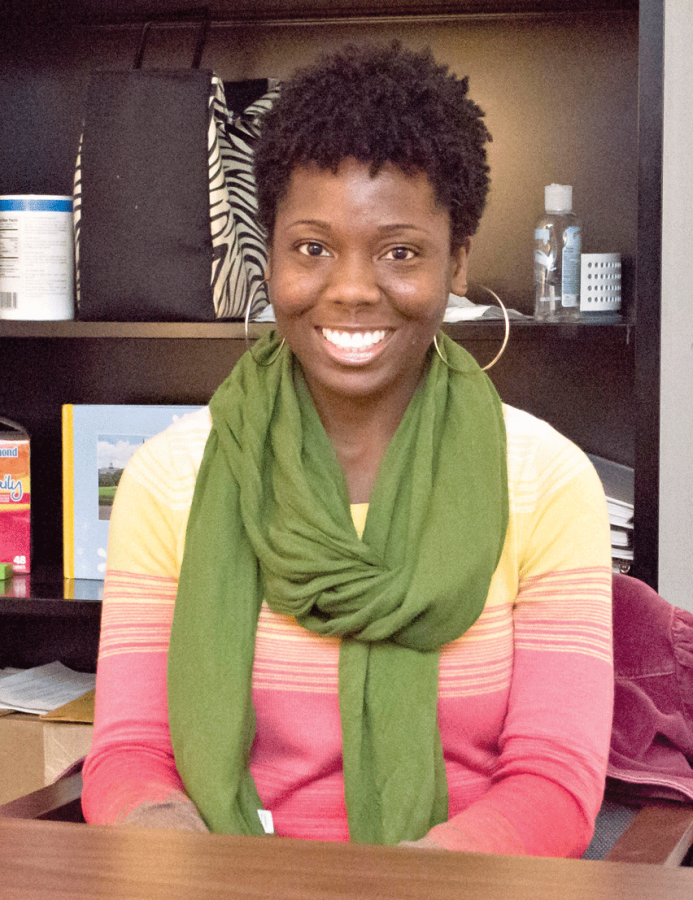Assistant Professor of Biology Dr. Shayna Wrighten joined the Francis Marion University (FMU) faculty in 2012. Along with teaching a variety of classes, Wrighten has begun working on a new research project.
Originally from Charleston, Wrighten said she has always had a knack for science and law but ultimately decided to pursue a career with neuroscience.
“I’ve always been interested in sciences and people and behaviors, which is basically what neuroscience is,” Wrighten said. “It was kind of a perfect fit for me.”
Wrighten credited her interest in neuroscience to her family, whom she says sparked her love of people.
Wrighten began her college career at Furman University in Greenville, SC, where she obtained an undergraduate degree in neuroscience. In 2011, Wrighten obtained her Ph.D. in biomedical sciences at the graduate school of University of South Carolina in Columbia. Just after receiving her doctorate, Wrighten joined the FMU family and is currently teaching in the biology department.
Throughout the years, Wrighten has conducted several research projects. During her college years, Wrighten used mice to research how genetic background affects addiction to ethanol. In graduate school, she studied the effects of insulin on the memory function of the brain. Since arriving at FMU, Wrighten has started working on her current research project, studying the brain functions of rats to identify what factors, such as the environment, allow them to have empathy.
Department Chair of Biology, Dr. Ann M. Stoeckmann gave positive thoughts on Wrighten.
“Dr. Wrighten is really good in the classroom and the students really seem to like her,” Stoeckmann said. “She adds a new perspective to the research group in our department in terms of the kind of research she does which is great because it is always good to broaden the depth of the department.”
Wrighten is hopeful that in the semesters to come she will be teaching a discussion based neuroscience class. She says it is still in the works but she wants the class to focus on diseases of the nervous system such as stroke and mental disorders.
According to Wrighten, upon completion of their doctoral degree, it is common for biology students to do a “post-doc” year centered on research.
Wrighten said she created her own path when she chose to become a professor and encourages students not to be afraid to create paths for themselves.
“The path I took is not the one people usually take,” Wrighten said. “I had people tell me I wasn’t going to get a job because I didn’t do a post-doc first.”
Wrighten added a piece of advice for students across all majors.
“Work as hard as you can and never do just enough,” Wrighten said. “If all you need is a B, why not shoot for an A? If you only shoot for just a B, chances are, you will never get anything better.”
